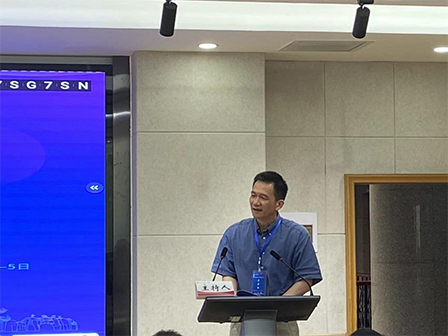到底为什么有政府?
观点 · 2005-01-07 00:00
返回Ah sa: If it is efficient for government to do zero intervention, can anybody tell me why we observe something named "government" everywhere in the long run? dzz: First, I don't think the government ...
Ah sa:
If it is efficient for government to do zero intervention, can anybody tell me why we observe something named "government" everywhere in the long run?
dzz:
First, I don't think the government has originated from economic activities. So its existence is independent of whether the economy is efficient or not. Second, I don't believe government cares efficiency issue as much as economists do. In another word, government is different from the social planner in macroeconomics. The presence of government in the economic activity can be interpreted as a measure to improve the efficiency (hopefully), or simply a result of the bargaining process of some special interest groups (most likely). Finally, the “invisible hand” and free market leads to efficiency is simply an economic fable. Since this is the undergoing debating topic between Yang and oscarwong, I refrain myself from further comments.
bear:
No matter whether the government exists, no matter what dose it do, the economy is always "efficiency". I think 《賣桔者言》has given us some ideas.
dzz:
Economics goes well beyond 《賣桔者言》and Cheung's work. In fact《賣桔者言》 doesn't even belong to academic work. I don't understand why the efficiency exists everywhere? In the game theory frame work, there are many inefficient examples, even the agents are perfect rational,the information is complete (i.e.no information cost) and there is no uncertainty.
Ah sa:
To bear:
From a methodological point of view, it's undesirable to define a concept in such a way that (i) it always apply or (ii) it never apply because in either case it becomes useless. (eg. the concept "perfect" (strictly) can never apply because when something is "perfect", it becomes "imperfect" because it cannot be "imperfect").
That's why economists define different types of "efficiency": first best, second best, constrained pereto optimal to fix the idea. Well, one has his freedom to define whatever he wants (especially in one's bestselling prose collection). But to communicate with your colleagues effectively, you have to use the commonly accepted language. (It is amazing that Hong kong education department allows S. Chenug to teach high school students all those concepts he invented himself (those newly defined concepts of rent, interest, capital, profit, ...) with which you cannot communicate with 99.99999% of economists in the world.
To dzz:
The arguement of Cheung goes in this way:
Suppose X is an efficient allocation without taken into account any frictions (economist(except possibly Cheung) call this First Best, that is X is efficient in set of all technically feasible allocations).
If we assume agents are utility maximizing, agents should have achieved X. If not, there must be some obstacle (eg. information cost, contracting cost, property right problem...) avioding them to achieve it. In this case, agents will evaluate the cost C of removing this obstacle. There are 2 cases:
(i) If this cost C is lower than the value of X, agents will pay this C and achieve X, thus efficiency is achieved in equilibrium.
(ii) If this cost C is higher than the value of X, agents will not pay this C and X is not achieved. But because the net value of achieving X is negative, not attaining X is actually an efficient choice. (economist call this Second Best, that is, X is not effecient in the set of all "technically AND incentively" feasible allocations)
For example, in the case of Prisoner's Dilemma: (not confess, not confess) is the first best but not the second best (subject to the incentive compatibility constraint of agents). Most (but one) economists call the the equilibrium (confess,confess) inefficient in the sense that it is JUST the second best; Our beloved Prof. Cheung calls (confess,confess) efficient because it IS the second best.
Prof. Cheung and his disiples choose not to use the clearly defined and comonly used distinction between First & Second Best, but to say "efficieny is either always attained or always not attained (like playing magics). As I have mentioned, this is a choice of terminology. (Hong Kong high school has obviusly chosen the one that is misleading and not accepted by western economists.)
Actually, there are something more foundamental here. When economists use the term "efficiency", they use it with respect to a set of constraints, so this concept becomes meaningful because it doesn't describe all circumstances. On the contrary, when Cheung and his 12 disiples used "efficiency", they do not specify the relevant set of constraints. Instead, they use the ambiguous term "transaction cost" which can be anything they want(Note 1). As a result, the concept "efficiency" becomes useless because it can describe any situations.
--------------------
Note 1: Cheung defined "transaction" cost as the cost that doesn't exist in an one-man economy.
Question: is the cost of pregnancy a transaction cost?
I don't mean to say that the concept of transaction cost is useless, but to make it a scientific concept, we need a more precise definition (e.g. transaction cost=transportation cost).
Back to my original question:
"If it is efficient for government to do zero intervention, can anybody tell me why we observe something named "government" everywhere in the long run?"
If we see a man banging his head against the wall, we laugh at him and call him an idiot.
If we see him keep doing this everyday, we think, "hey, either he's the lord of idiot, or he has a reason to do it."
If we see everybody else are doing this and doing it everyday, we would wonder if it actually worths to do so. (maybe everybody has a worm in his head)
Governemt has been existing for thousands of years in most every economies, I guess it is very hard to argue that an instition that sustains for so long is a complete error. If it was a error, what keeps it sustaining? Some path dependence/lock-in problem? coordination problem? free-riding? herding? I just don't understand.
mandragora:
政府解决市场失灵问题,曼昆的经济学十大原理之一就是政府有时候可以改善市场结果
小黎:
我的观点:
政府的职能并不局限于经济,所以,反过来看,政府的产生也不完全因为经济因素。
如果没有“政府”这样的名词,政经、社会、国防等职能一样会由用其他某个名词命名的的“something”来行使。
就如同你的名字,如果你不叫Ah_sa,而叫其他名字,比如none,从本质来说,你还是你自己,只是你的名字变了。
现象的,和本质的——其实就是西经和政经研究角度的的一个差异。
Arctic_Ocean:
秩序的维护者!
earthese:
政府就是一个国家的最高上层建筑,拥有暴力机构和运用暴力机构的权利。
小黎:
从最泛的角度来说,“政府”是社会分工的一种,是社会分工的需要。
wuwuwuyong:
社会的秩序稳定者。
参阅:http://bbs.efnchina.com/dispbbs.asp?boardID=92507&ID=28520



